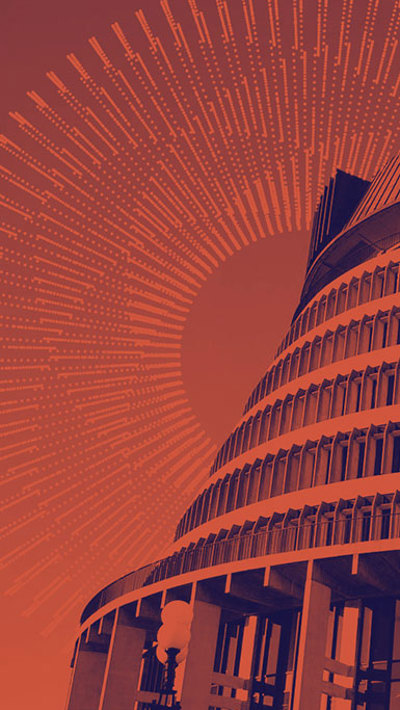Contents
Briefly is an occasional publication tracking political and regulatory developments.
Our latest Briefly covers what has been a very busy policy period – the budget was just one event among several giving us a clear picture of the direction in which the Government wants to take the country. Much has been said recently about their centralist tendencies but there is an equal focus on building an economy which is more resilient to change – both at the personal level and in terms of physical infrastructure.
In this edition, we look at the planned immigration policy reset, moves toward a social unemployment insurance scheme, the Fair Pay Agreements system, the revamped overseas investment regime, the large numbers attached to the Three Waters Programme, and the development of a new 30-year infrastructure strategy.
An immigration policy reset
The Government’s planned immigration policy “reset” will respond to a criticism from the OECD that the employer-assisted temporary work visa system is not limiting migrant recruitment to resolving genuine skills and labour shortages, is attracting too many low-skilled migrants and may be weakening incentives for employers to employ and train New Zealanders.
Changes to address these issues – in particular a new requirement that employers be accredited and meet standards of good practice – will come into effect this November, but the Government will use the hiatus created by the COVID pandemic to conduct a much larger review and has tasked the Productivity Commission with developing recommendations to ensure that migration promotes productivity in a way that supports the overall wellbeing of New Zealanders.
Announcing the move, Finance Minister Grant Robertson said: “Many migrants settle smoothly and prosper here, benefiting themselves, their families and New Zealand. They bring a highly valuable diversity of skills, talents, knowledge, experience, international connections, and financial, social and cultural capital.
However, it is important that we better understand the economic and other impacts of New Zealand’s immigration system. For example, some firms, industries and regions rely heavily on migration to meet their skill and labour needs and there is concern that this has led to downward pressure on wages.
The inquiry, the first to be conducted under new Commission Chair Ganesh Nana, will take a system-wide view, including the impact of immigration on the labour market, housing and associated infrastructure, and the natural environment.
For more information, read the speech and Robertson's statement.
Toward a social unemployment insurance scheme
Business NZ and the New Zealand Council of Trade Unions (CTU) are working with the Government to design a Social Unemployment Insurance Scheme that would support workers who lose their jobs by providing them with 80% of their former earnings for a time-limited period.
The move was announced as part of the budget package by Finance Minister Grant Robertson and developed out of the Future of Work initiative, which Robertson leads.
The Social Insurance Tripartite Working Group will consult with targeted stakeholders over the next few months before throwing the consultation open to the wider public.
To learn more, read the statement.

Labour on a mission with fair pay agreements
After being stymied last term from delivering on its promise to introduce fair pay agreements, Labour is now embarked on a policy which has the potential substantially to increase collective bargaining and union influence in the workplace.
Read our commentary here.
Revamped overseas investment regime
The comprehensive rewrite of the Overseas Investment Act is now complete with the passage on 24 May of the second piece of amending legislation (Amendment Act), many of the provisions of which will come into force on 5 July.
Read our commentary here.
Timing auspicious for 30-year infrastructure strategy
The 30-year infrastructure strategy now being consulted on by the New Zealand Infrastructure Commission Te Waihanga is being developed in circumstances which offer every chance of achieving an outcome that will deliver meaningful change.
The need for a massive investment in infrastructure and the importance of a coordinated response are well-understood, and there are a number of complementary workstreams already in play – in particular the public health restructure, the impending climate change budgets, the local government review, the Three Waters Programme and the rewrite of New Zealand’s resource management law.
Submissions close on 24 June. The Commission hopes to have a draft report with Infrastructure Minister Grant Robertson in September and a final product to be tabled in the House before end of March 2022.
Read our commentary here.

Big numbers attached to Three Waters reform
The Three Waters Programme led by Local Government Minister Nanaia Mahuta has some very big numbers attached, and a diverse set of stakeholders to corral for a common good.
An economic benefits analysis by the Water Infrastructure Commission of Scotland (WICS) estimates the total cost over the next 30 years at between $120b and $185b. This compares to aggregate council capital expenditure of around $1.4b on average each year over the last five years, although draft council long-term plans anticipate this will rise to $2.7b annually over the next 10 years.
The WICS estimate, which Beca thinks may under-estimate the costs of rising environmental requirements, the climate change response, New Zealand’s seismic risk exposure and meeting iwi aspirations, is more than double the previous best guess of $50b in a Cabinet paper last December.
But the potential economic benefits, should the reforms be fully implemented, would also be huge, according to a Deloitte report which estimates they will deliver a $14b to $23b increase in GDP and support the creation of 5,900 to 9,300 jobs.
So what could go wrong? All of the modelling assumes a dramatic rationalisation of the sector from 69 providers to – ideally – four: three in the North Island and one in the South Island. This presents a range of questions and potential challenges for smaller authorities, and Auckland Council is currently signalling reluctance, with Mayor Phil Goff saying he is keen to keep working with the government to “explore alternative models for Auckland”.
The Government’s strong preference is that councils will opt into the new structure voluntarily but Mahuta has not ruled out other approaches for achieving the policy outcomes if necessary.
For more information, read Mahuta's statement and the departmental briefing to the minister.













































